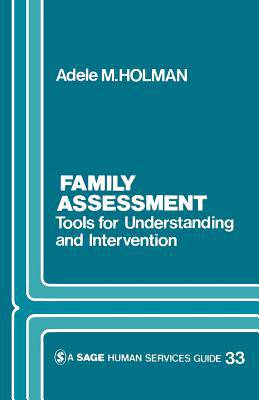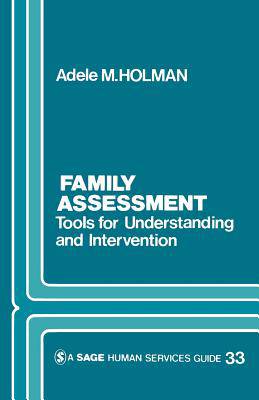
- Retrait gratuit dans votre magasin Club
- 7.000.000 titres dans notre catalogue
- Payer en toute sécurité
- Toujours un magasin près de chez vous
- Retrait gratuit dans votre magasin Club
- 7.000.0000 titres dans notre catalogue
- Payer en toute sécurité
- Toujours un magasin près de chez vous
216,95 €
+ 433 points
Description
This is a practical, easy-to-use guide for pinpointing the strengths and limitations of troubled families. Holman discusses elements crucial to understanding a family--the family as a system, the family and its environment, and the family life cycle. She explains such tested methods for assessing family problems as ecomaps, genograms, family sculpture, the use of observation, and checklists, and shows how family assessment lays the groundwork for effective intervention planning. Helpful features include case studies, exercises, charts, and sample forms. "Excellent case vignettes are given to demonstrate the application of role and systems theory in family assessment. The use of ecomaps, genograms, and family sculptures for collecting subjective and objective data is also effectively presented. Another highlight of the book is the recognition of the impact of divorce and single-parenting on the developmental cycle of a family. A good supplementary text for teaching methods on intervention with families in the field of human services." --Choice "Exceptionally clear, well-organized. . . . The integration of family theory with practice issues and case illustrations is very well done. . . . I believe [Family Assessment] will help make contributions from family theory accessible to child welfare workers in an interesting, informative and useful way." --Mary Ann Jones, Director of Research, Child Welfare League "Adele M. Holman′s work is bound to stimulate, enthuse, and make accessible tools of assessment which (if used in the context of wider reading in systems theory) would be rewarding for the novice in this field." --British Journal of Clinical Psychology "The real value of this volume is its usefulness as a training tool, both with undergraduate child welfare staff and with volunteers in child welfare. It brings to life the processes of family assessment and is a volume deserving use by church social workers who are responsible for the work of volunteers and staff in the church′s child welfare ministries." --Review and Expositor
Spécifications
Parties prenantes
- Auteur(s) :
- Editeur:
Contenu
- Nombre de pages :
- 119
- Langue:
- Anglais
- Collection :
- Tome:
- n° 33
Caractéristiques
- EAN:
- 9780803920200
- Date de parution :
- 01-06-83
- Format:
- Livre broché
- Format numérique:
- Trade paperback (VS)
- Dimensions :
- 141 mm x 213 mm
- Poids :
- 176 g

Les avis
Nous publions uniquement les avis qui respectent les conditions requises. Consultez nos conditions pour les avis.






